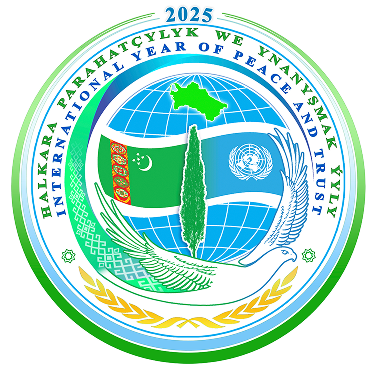NATIONAL PRIORITIES FOR THE DIGITAL ECONOMY

Recently, the Academy of Civil Service under the President of Turkmenistan hosted a solemn meeting dedicated to the presentation of master's degrees to the first group of graduates of the 2020-2021 academic year with a degree in Digital Management. 13 undergraduates became holders of the coveted diplomas of the Bologna system, who during the academic year mastered 12 special and general subjects, underwent practical training, successfully passed the state exam and defended their research work on the chosen topic.
The graduates of the master's study group include representatives of the Ministry of Education, Finance and Economy, the Main State Service "Turkmenstandartlary", the State Commercial Bank "Turkmenistan", the State Energy Institute of Turkmenistan, the Institute of International Relations of the Ministry of Foreign Affairs of Turkmenistan, as well as leading experts of a number of commercial and business structures of the country, who received higher education at the level of "specialty" and "bachelor degree" in the universities of Turkmenistan, Russia, Ukraine, Belarus and China.
This training program was developed in light of the key vectors of strategic development of Turkmenistan in the field of digitalization, which opens up wide opportunities that contribute to the country's long-term economic growth and the achievement of high productivity in all sectors.
When developing the educational master's course "Digital Management", was used the foreign experience of a number of leading countries in Europe, the CIS, and Central Asia.
The main objective of the master's course "Digital Governance" was the training of highly qualified specialists in the field of information and communication technologies involved in the implementation of electronic document management systems and digital platforms for organizations and institutions of the state and non-state sectors of the economy.
According to the conclusion of a number of leading IT companies, such as Microsoft, China Mobile, IBM, today in the global labor market 78% of professions require basic digital skills and about 44% of companies in the world have a digital development strategy. Digitalization of the national economy will require a large number of qualified business analysts, financial managers, project managers, e-commerce specialists, Digital marketing specialists, HR specialists.
Currently, our country is undergoing a digital transformation, which implies the use of innovative technologies to increase the efficiency and competitiveness of domestic enterprises in the modern world. Thanks to this, changes have become real - in the digital industry, agriculture, transport and logistics, urban infrastructure, sports and other industries, as well as online services in banking and trade. Large-scale changes have affected absolutely all areas of the economy and have led to a change in existing business models.
Associate Professor of the Department of Economics and Finance of the Academy of Civil Service, Candidate of Economic Sciences Akdzhemal Burunova noted that - “The educational master's program“ Digital Governance ”is complex, intersectoral and interdisciplinary, including the study of such disciplines as“ Electronic Government Technology ”,“ Information Society Management ”, "Management of Change", "Management of the Banking and Financial Sector", which provides for the widespread use of distance and e-learning technologies. "
“Digitalization is the use of digital methods to solve problems in a new way, and the foundation for this designer is set by the Concept for the Development of the Digital Economy in Turkmenistan in 2019-2025,” believes Aina Nurmuradova, Master of Digital Management. She emphasized that the curriculum of the master's course "Digital Management" has been interpreted with the main provisions of the national concept - training of personnel and their competence, information infrastructure, information security, the development of domestic digital technologies and artificial intelligence and the study of the regulatory framework.
Thus, the transition to a digital economy will contribute to the development of investment activity, the introduction of advanced methods of public administration and the creation of new jobs, and an increase in the efficiency of all industries through the use of information technology.
In conclusion, I would like to note that the nearest plans of the Civil Service Academy are the launch of a two-year master's degree curriculum in the specialty "Public Administration", which was developed with the participation of the joint project of the European Union "Support to Building the Capacity of Civil Servants in Turkmenistan".


 NEWS
NEWS